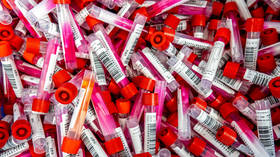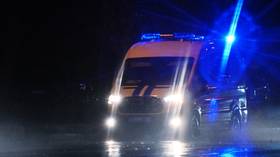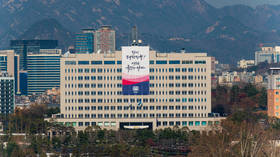U.S. public disillusioned as bailout struggle goes on
U.S. President George Bush says the economic damage will be "painful and lasting'' if Congress doesn't back his financial rescue plan. As the world's markets continue their roller-coaster ride, Americans are definitely f
Employees on Wall Street faced gloom and doom under the prying eye of media networks and hoards of tourists. Brokers and bankers ran for cover as a solution to the nosediving U.S. economy remained non-existent.
After rejecting the $US 700-billion bailout plan on Monday, lawmakers from the House of Representatives are taking a break for the Jewish holiday of Rosh Hashanah and will reconvene on Thursday. Senators are to consider the bailout again on Wednesday. .
Fear is spreading as state officials say the economic crisis will cost 40,000 New Yorkers their jobs by 2010. More than $US 3.5 billion is expected to be bitten out of the Big Apple.
Americans struggling with rising unemployment and collapsing property prices resent bailing out Wall Street bankers they say created this crisis.
Many say the fear factor infecting Wall Street hasn't been this bad since the September 11 attacks. New York, brought to its knees by terrorism, rose back even stronger. Residents say they never imagined they'd be facing another crippling crisis so soon.
Minas Polychronokais has owned a shoe-repair shop on Wall Street for 30 years. His business was destroyed on 9/11. It took him three years to rebuild it. Having survived one disaster, he says the looming economic catastrophe presents new dangers.
Polychronokais says these days business is down, with fewer Wall Street suits concerned about appearances.
“If they lose their job, I lose them as customers. That means I'm losing my job too,” he said.
U.S. leaders are vowing to continue pushing for decisive action on the $US 700 billion bailout plan. But many say it's too little to late.
“My grandmother used to keep her money under her mattress and I'm wondering if that's the best way to go now,” said one New Yorker.
Candidates' solution
The American presidential candidates have been commenting on the ongoing crisis. After the House of Representatives rejected Bush's bailout proposal Tuesday, both Barack Obama and John McCain gave their views on how best to combat the financial crisis.
Interestingly, both politicians came up with the exact same idea. They have suggested increasing the federal deposit insurance both for American families and small businesses.
Tuesday witnessed a massive exodus of clients from their banks. As banks started to collapse one after another, Americans started to close their saving accounts and withdraw their cash from the banks.
If this continues, the situation might become devastating for the banking sector, which is already suffering from a shortage of liquidity.
At the moment only deposits up to $US 100,000 are insured by the American government. Aiming at calming bank customers, the presidential candidates suggested raising the insurance threshold from $US100,000 to $US 250,000.
It is not yet known what the White House thinks about the proposal. However, efforts to resuscitate the $US 700 billion bailout plan for Wall Street are sure to continue. The House of Representatives is to consider an amended version of the bill on Thursday.
Failed bill? Re-brand and sell it!
The bailout bill failure came as a surprise after the urgent need for it was stressed by numerous public figures, including both presidential candidates.
Perhaps the White House just did a bad job selling it to the legislators, starting with the very name, argues the New York Times. The public took the ‘bailout plan’ as an act to save the Wall Street moneybags at taxpayers’ expense, not a measure to save the economy.
“The hurdle is overcoming the word ‘bailout’. It has continued to be used by members of Congress. You see it in the press today all over the place,” said R. Bruce Josten, executive vice president of the United States Chamber of Commerce. “This is not a bailout; this is the Treasury buying toxic assets that they will dispose of over a period of time and resell.”
Making Hank Paulson, a former chairman of Goldman Sachs, the public face of the bill didn’t help its image. So if the rescue package is to have a chance of resurrection, a good re-branding is due.
Fact file: What can you buy for $US 700 billion?
- 5.4 million U.S. students could be sent to public universities.
- The government could rebuild Katrina-ravished New Orleans and the Gulf coast… three and a half times.
- This is actually $US 140 billion more than has been spent on the Iraq war so far
- This is also nine times more than the U.S. government has spent on public education in 2007












